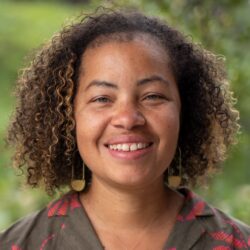Tools to Help Us Heal and Take Action
In response to the violence of systemic racism that we have witnessed these past weeks, I want to offer ways in which all of us can engage in nonviolent action. As a woman of color, I have been re-traumatized by the deaths of George Floyd, Breonna Taylor, and Ahmaud Arbery. I have felt despair and am still working through my own pain and anger at how black and brown lives are not valued or protected. I know I am not alone in these feelings and I want to offer suggestions in ways to heal and take action.
The way in which this kind of violence affects people of color and white people are different and therefore require a different response. Below are suggestions for people of color, for white people, and some that apply to all of us.
Suggestions for People of Color
Find ways to rest and heal. As people of color, we can experience this violence very personally. It is critical to our healing that we take time to rest our bodies and minds. We hold stress in our bodies, and need to release that stress. Release can come from talking with loved ones, journaling, exercising, creating art, listening to music, meditation. Dedicate time on a regular basis for your resting and healing. Some resources I have found useful are the Nap Ministry, Blackness and Belonging, and the book My Grandmother’s Hands by Resmaa Menakem.
Find affinity spaces. When we experience trauma, we must remember the importance of grieving and moving through the pain. We can support each other at such times. Look for or create opportunities to be in community with other people of color.
Suggestions for White People
Listen to people of color. When people of color share their experiences and truths with you, listen and believe them. This is the most important step to building allyship, and the only way white people can begin to dismantle white supremacist ways. White supremacy doesn’t allow people of color agency or voice over their own stories, lives, or bodies. You can help to change that by listening with humility and open-mindedness, and believing what people of color have to say.
Continue to educate yourself. If these recent events are shocking to you and you don’t understand that they are part of an ongoing, predictable pattern of violence against people of color, take the time to continue to educate yourself on the history of systemic racism in this country. There are many resources as well as podcasts and films that can help. A shortlist of resources can be found here. If you have suggestions to add, please share so I can add them and the list can continue to be updated. I highly recommend the book Stamped from the Beginning by Ibram X. Kendi and the film 13th on Netflix produced by Ava DuVernay.
Recognize and use your privilege. As white people, you have privileges that systemic racism has afforded you. Recognize this, and use your privilege to help dismantle systemic racism and work towards an anti-racist society. If you are able to, donate to the families of victims of racial violence. If you are involved in nonviolent protest stand in solidarity and follow the leadership of the black and brown bodies who are by your side. If you are in all-white spaces, speak the truth about racism and address bias and racist ideas that might emerge in conversations. Here are some resources to learn more about white privilege in your engagement as a white ally for racial justice.
Continue to engage in your white identity. Acknowledge your pain, guilt, or other feelings. These feelings are part of the journey. Don’t hide from them, but use them as opportunities to reflect and discuss with people you trust. Ultimately, your reflections will help you to build a healthy racial identity. Consider watching this TEDx Talk by Ali Michael on building a positive white identity.
Suggestions for Everyone
Learn about and engage in local politics. In order to bring about changes legally, we need to engage politically. What legal changes can you support that will help dismantle systemic racism and build more authentic and inclusive community relationships, including relationships with police and local government? Reach out to your local politician and ask if there are efforts in your area or district to end police brutality. Also, check out Campaign Zero if you want to learn more about how to engage in ending police brutality.
Find a virtual event or way to honor those who have lost their lives. For instance, on Tuesday, June 2, at 5:30 p.m. EDT Brooklyn Friends School will host an event with Ahmaud Arbery’s mother, Wanda Cooper-Jones, as well as the IRunWithMaud Committee. Speakers will reflect on the life of Ahmaud Arbery, their experiences in the aftermath of his murder, their perspectives on systemic racism, policing, accountability, and justice in America – for Ahmaud and for all Black and Brown bodies. This event is designed for students (7th-12th grade) and adults and will include ideas about how each of us can actively seek justice and create change.
Please continue to take care of yourselves and one another. In closing, I offer this poem.
We Look with Uncertainty By Anne Hillman
We look with uncertainty
Beyond the old choices for
Clear-cut answers
To softer, more permeable aliveness
Which is every moment
At the brink of death;
Something new is being born in us
If we but let it.
We stand in a new doorway,
Awaiting that which comes…
Daring to be human creatures.
Vulnerable to the beauty of existence.
Learning to love.



